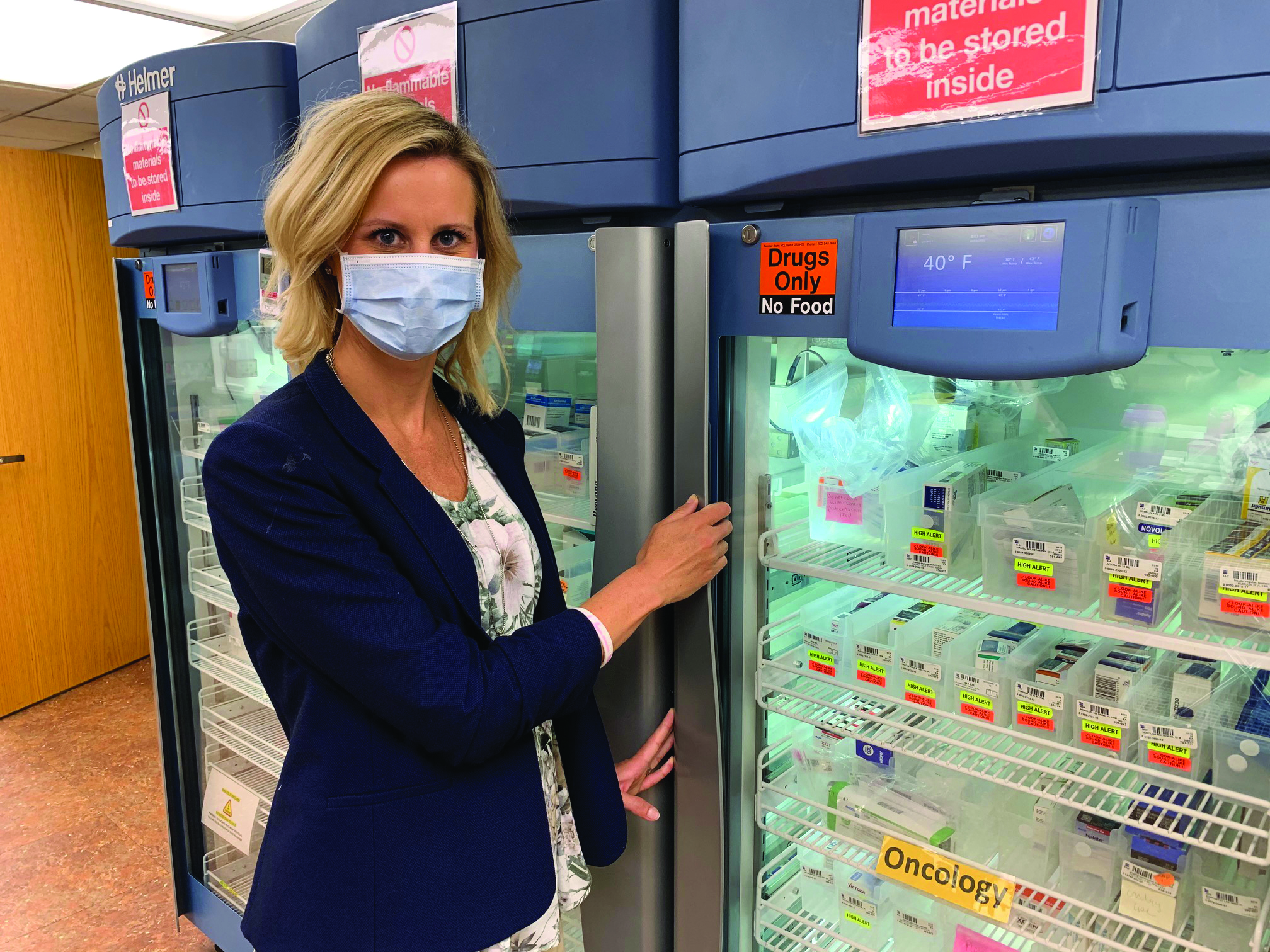How the Vaccines Work and the Promise They Can Offer

July 8, 2021
Of all the different vaccines you may have in your lifetime, perhaps none will be as memorable as the COVID-19 vaccine. St. Mary’s Director of Pharmacy Jessica Easterwood, PharmD, calls the vaccines history in the making. She was part of a team effort to administer the first FDA-approved vaccine, from Pfizer, to the St. Mary’s staff in December and January. “We knew this could help us bring about the beginning of the end of the pandemic,” she says.
What's different about the COVID-19 vaccines?
Like other vaccines, the COVID-19 vaccines trigger an immune response in your body to produce antibodies that help fight disease. Specific antibodies remember specific germs like the coronavirus so they can fight them in the future if they encounter them again. What’s different about the Pfizer and Moderna vaccines is that they use a new concept involving messenger RNA (mRNA) to activate your body’s defenses. “The mRNA blueprint gives our cells a set of instructions to trigger an immune response to the COVID virus,” Easterwood explains. “It shows them what to do, then it degrades. It works very quickly and then it’s gone.”
 Johnson & Johnson’s one-dose vaccine, the third to get FDA approval, is more traditional and uses a “viral vector” to trigger an immune response, Easterwood says. “It’s giving our cells instructions using an adenovirus.” This is a weakened virus that’s modified and cannot give you COVID-19, she explains. The FDA recently warned that this vaccine was linked to a rare autoimmune disease called Guillain-Barré syndrome, in which the immune system attacks the nerves. Most of the 100 cases (out of nearly 13 million doses) occurred in men over 50. One of those 100 cases resulted in death.
Johnson & Johnson’s one-dose vaccine, the third to get FDA approval, is more traditional and uses a “viral vector” to trigger an immune response, Easterwood says. “It’s giving our cells instructions using an adenovirus.” This is a weakened virus that’s modified and cannot give you COVID-19, she explains. The FDA recently warned that this vaccine was linked to a rare autoimmune disease called Guillain-Barré syndrome, in which the immune system attacks the nerves. Most of the 100 cases (out of nearly 13 million doses) occurred in men over 50. One of those 100 cases resulted in death.
Will vaccines be the tool we need to put the pandemic behind us?
“I’m not an infectious disease expert or epidemiologist, but we know for any type of outbreak like this, in order for it to go away, you’ve got to have a majority of your population immune to the virus in some aspect,” Easterwood says. “I think we’re all really encouraged that this is working.”
For the most current information on COVID-19 vaccines, visit cdc.gov.
Are you up-to-date on all your vaccines?
Different vaccines throughout different stages of life can play a vital role in protecting you against harmful diseases. Talk with your doctor about the vaccines that may be recommended for you, including the COVID-19 vaccine.
